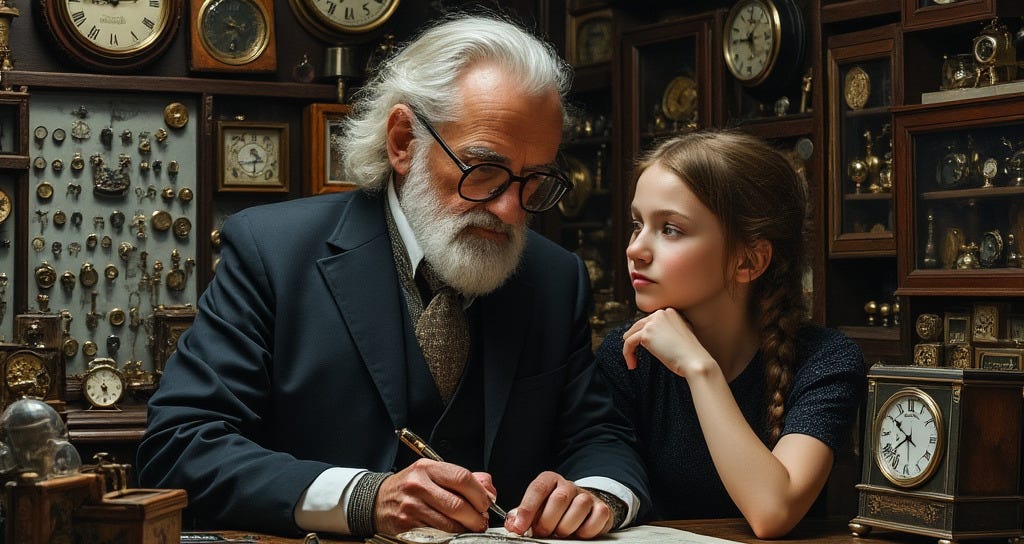The Last Watchmaker
An AI generated short story by GROK
I have been playing with AI to see how good or bad it is. Mostly it is pretty bad at things but this was a pretty nice little short story it generated that I did appreciate. I thought I would share it and hope you enjoy it.
The Last Watchmaker
In the heart of a city where time moved faster than anywhere else on earth, lived an old man named Mr. Elbridge. He was the last watchmaker, a craftsman of an era forgotten by the relentless march of technology. His shop, "Elbridge's Time," was a small, dusty relic squeezed between towering glass and steel giants, each floor flickering with the life of digital screens.
Mr. Elbridge, with his silver hair and spectacles perched on the tip of his nose, spent his days bent over tiny gears and springs, the tick-tock of his creations the only music in his life. His hands, though gnarled with age, moved with a precision that could only come from decades of practice.
One day, a young woman named Lila stumbled upon his shop. She was lost, not in the city, but in life, seeking something she couldn't quite name. Her watch had broken, a vintage piece inherited from her grandmother, the last tangible link to a past she longed to understand.
"Mr. Elbridge," she began, her voice tinged with desperation, "Can you fix this?"
He took the watch gently, his eyes lighting up with a spark of nostalgia. "Of course, my dear. Every watch tells a story, and this one has been silent for too long."
Lila watched as Mr. Elbridge worked. He spoke of time not as a linear path but as a series of moments, each precious, each to be captured and preserved in the intricate mechanisms of a watch.
"Time," he said, "is the most valuable currency we have. Unlike money, once spent, it can never be earned back."
As days passed, Lila visited the shop, drawn not just by the repair of her watch but by the stories Mr. Elbridge shared. He talked about watches that had stopped at the moment of their owners' deaths, or those that kept time in places where clocks wouldn't work. Each tale was a lesson in living, in appreciating the now.
Finally, the watch was ready. Mr. Elbridge handed it to Lila with a solemn nod. "Remember, time is not just to be measured," he advised, "but to be cherished."
Lila left the shop with her watch ticking once more, but also with a new perspective. She realized she had been rushing through life, trying to keep up with an unattainable pace. Now, she understood the beauty of slowing down, of watching the world with the patience of a watchmaker.
Years later, when Mr. Elbridge passed away, his shop closed, but his legacy lived on. Lila, now an advocate for living in the moment, opened a small museum dedicated to the art of watchmaking, where each exhibit was a testament to the philosophy of Mr. Elbridge: that time, in its essence, was to be used to enrich life, not just to measure it.
And somewhere in that museum, among the countless ticking mechanisms, was a plaque:
To Mr. Elbridge, who taught us the value of each second and the art of keeping time.
The End.


